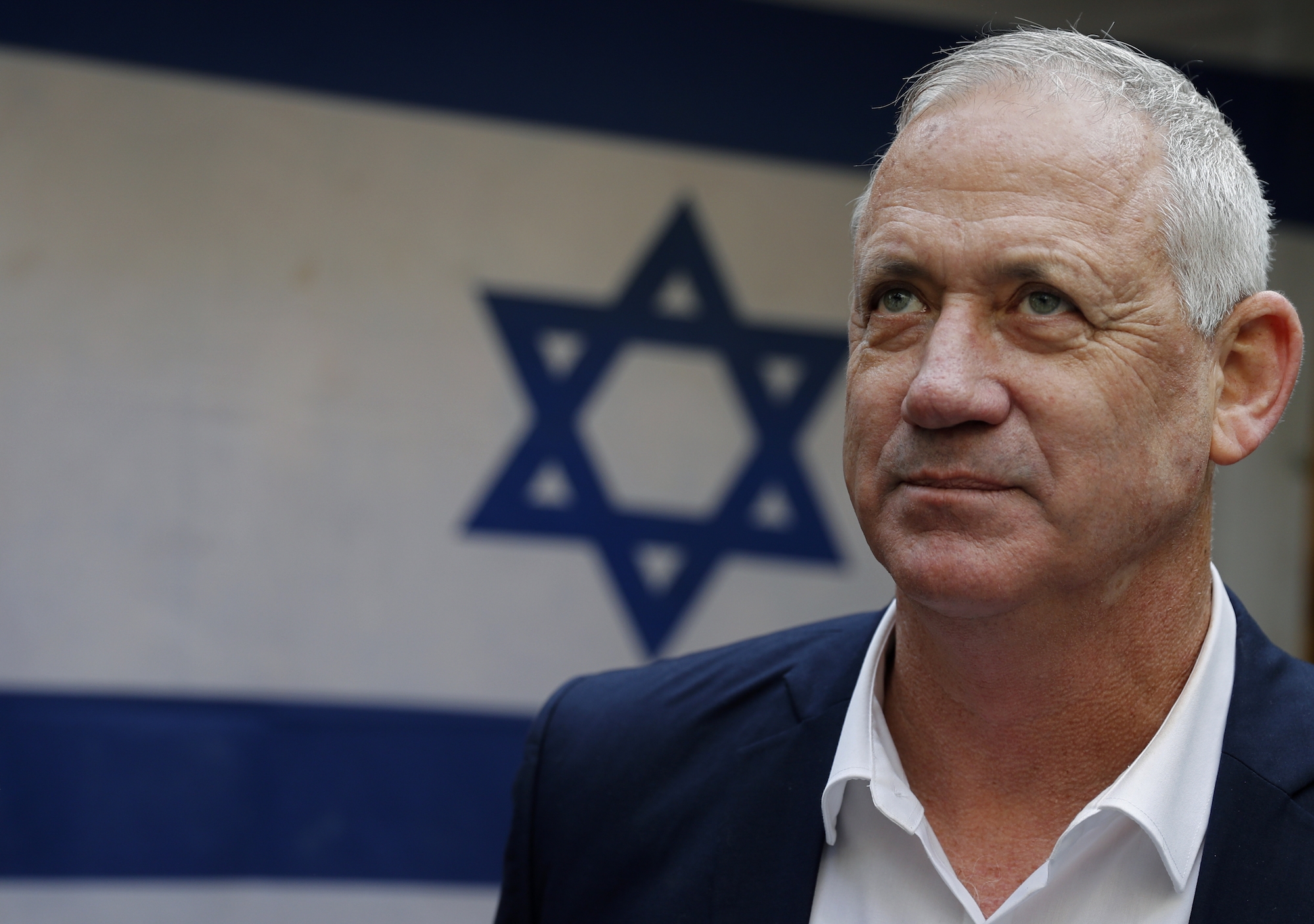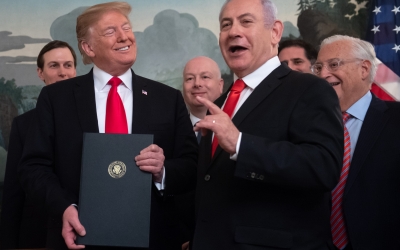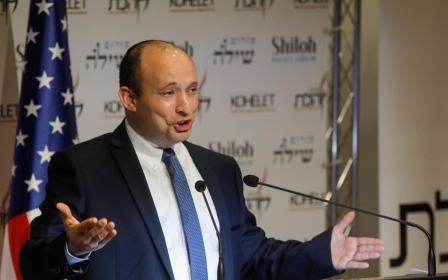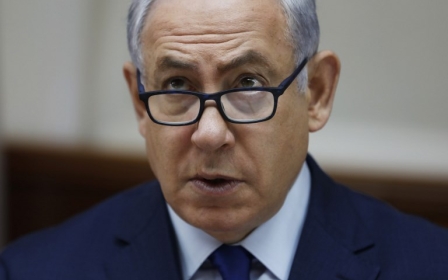Israeli opposition leader Gantz vows to annex Jordan Valley if elected PM

Israeli opposition leader Benny Gantz said on Tuesday that he would seek to annex the Jordan Valley - located in the eastern occupied West Bank - if elected prime minister in an upcoming election, Israeli media reported.
Gantz made the statement during a tour of the region, calling the Jordan Valley “Israel’s eastern defensive barrier in any future conflict” and “an inseparable part of the State of Israel".
The leader of the Blue and White Party said he would apply Israeli sovereignty to the Jordan Valley “in coordination with the international community”, if he wins the election in six weeks’ time.
The vast majority of the international community - with the notable exception of the administration of US President Donald Trump - deems Israel's military occupation of the West Bank, East Jerusalem and the Gaza Strip a violation of international law.
Israelis will head to the polls on 2 March for the third time in a year, after neither Benjamin Netanyahu, the incumbent prime minister, nor his main rival Gantz, were able to form a government since the last legislative election, held on 17 September.
New MEE newsletter: Jerusalem Dispatch
Sign up to get the latest insights and analysis on Israel-Palestine, alongside Turkey Unpacked and other MEE newsletters
Earlier this month, Israeli Defence Minister Naftali Bennett announced that he was launching a task force to impose Israeli sovereignty over Area C - the 61 percent of the West Bank under Israeli military control as per the 1993 Oslo Accords - and grant Israeli settlers an unprecedented right to own land privately.
Last week, he went on to announce that Israel would be establishing seven new nature reserves in the West Bank as part of efforts to maintain Israeli control of the area. All sites are located in Area C, which includes the strategic Jordan Valley.
The move is in line with a promise made by Netanyahu last September to annex the Jordan Valley "immediately" if re-elected prime minister. He also said he would move to annex illegal Israeli settlements following the completion of Jordan Valley's annexation.
The Jordan Valley accounts for around one-third of the West Bank, and Israeli right-wing politicians have long viewed the strategic area as a part of the territory they would never retreat from.
Trump's peace plan
In what appeared to be a change of stance, on Tuesday Gantz said that he hoped Trump would “hurry and release” his plan for Israel and Palestine, colloquially known as the "deal of the century".
“Several weeks have passed. Many dramatic things are happening in the Middle East, and I’m looking forward to the plan's release,” Haaretz quoted Gantz as saying, pointing out that in the past the former army chief had said such a move would be a gift to Netanyahu and an “outright intervention”.
Last year Netanyahu praised Trump's plan, which had been delayed until the formation of a new government, and said it presented a "historic opportunity" to extend Israeli sovereignty.
This plan would allow Israel to "apply our sovereignty over our settlements in Judea and Samaria and other places key to our security, our heritage and our future," Netanyahu said in September, using the Israeli name for the areas encompassing the West Bank.
The plan headed by Trump’s son-in-law and adviser Jared Kushner saw its economic component launched in a June workshop in Bahrain.
Since then, the launch of the scheme’s political elements has been anticipated, even more so after Trump administration’s bombshell announcement in November that it no longer considered Israeli settlements in the occupied West Bank to be illegal.
The move threw out a 1978 State Department legal opinion that stated that Israeli settlements violate international law. Written by then-State Department legal adviser Herbert Hansell, the 41-year-old legal opinion has long been the basis of US policy towards Israeli settlements.
The US announcement followed a series of staunchly pro-Israel measures taken by Trump since he came into office, including a contentious decision to move the US embassy from Tel Aviv to Jerusalem.
Trump also recognised Israel's hold on the occupied Syrian Golan Heights in March, a move that drew international criticism and raised fears that the US administration would green-light Israel's annexation of the occupied Palestinian territories.
Under the Fourth Geneva Convention, to which the US is a signatory, an occupying power cannot move its civilian population into territory it occupies.
There are approximately 200 official Israeli settlements in the occupied West Bank, including East Jerusalem, with around 620,000 residents, according to Israeli human rights group B'Tselem.
Middle East Eye delivers independent and unrivalled coverage and analysis of the Middle East, North Africa and beyond. To learn more about republishing this content and the associated fees, please fill out this form. More about MEE can be found here.





